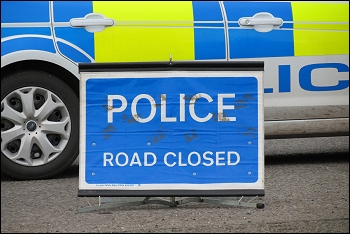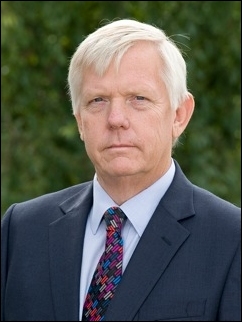New figures released this week show 22 people were killed on Somerset’s roads during 2015 as a fresh effort is launched to increase road safety.
The total for 2015 was 11 fatalities fewer than in 2014 but Somerset County Council wants to reduce the numbers further.
But Cllr David Fothergill, Somerset County Council’s Cabinet Member for Highways, right, said: “I’m pleased to see a drop in the number of road deaths across Somerset in 2015 – although clearly a single death is one too many.”
“It’s important we do analyse statistics like this thoroughly so we can make sure we target our resources in the right areas.”
“As you might expect for a predominately rural county, the majority of deaths were on country roads and we will be looking at ways to raise awareness of the specific dangers associated with these types of road, as well as carrying out road improvements where a need is identified.”
The Council’s road safety team receives police reports following any injury accidents recorded by the police and carries out its own research to identify trends and look for ways to improve safety across Somerset’s 4,000 miles of roads.
In 2015, five of the deaths were on urban roads – 11 were on rural roads with the remaining six on trunk roads including the M5 and A303 which are also classed as rural.
Further analysis of the statistics shows that 73% of fatal collisions involved cars, 9% motorcycles, 9% pedal cycles, 5% vans and 5% mobility scooters.
 Each accident resulted in a single fatality. 59% were drivers, 27% passengers and 14% were pedestrians.
Each accident resulted in a single fatality. 59% were drivers, 27% passengers and 14% were pedestrians.
In terms of ages, 41% of casualties were over the age of 59, 23% were between 40 and 59, 18% 25 to 39 and 18% in the 16 to 24 age group.
Using latest Department for Transport figures, the 22 fatal accidents are estimated to have cost more than £45 million in damage and lost output, not including the emotional impact of the irreplaceable loss of a family member.
Somerset Road Safety provides advice to thousands of people every year through educational events and also runs Bikeability courses for school children and trains School Crossing Patrols. The team also supports companies through the Mind Your Business programme and has more than 2,000 subscribers through Facebook and Twitter.
The Council’s Small Improvement Schemes programme helps to resolve community concerns and road safety problems by providing engineering solutions at priority sites.







